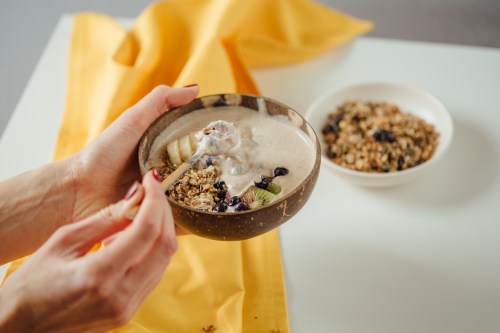3 doc-approved meds that belong in your seasonal-allergy survival kit
Do you have a seasonal-allergy survival kit? Here are doctor-approved meds and other natural methods that will save you from itchy eyes and the sniffles so you can enjoy that sunshine.

As lovely as green grass and colorful blooms are, the arrival of spring also means a pang of dread (and, um, sinus pressure, a runny nose, red eyes, and a scratchy throat) for anyone who has seasonal allergies.
To make things more tolerable when hay fever hits, bust out a seasonal-allergy survival kit. According to allergist Neeta Ogden, MD, there are three essentials everyone needs at their disposal to feel like a normal, functional human again once those not-so-fun symptoms start kicking in: “The cornerstones of treating allergies is usually a mix of a 24-hour oral antihistamine, an intranasal steroid, and some sort of allergy eye drop,” she told Self.
“The cornerstones of treating allergies is usually a mix of a 24-hour oral antihistamine, an intranasal steroid, and some sort of allergy eye drop.” —Dr. Neeta Ogden, allergist
There are some natural ways you can boot your symptoms, too. Aside from working on lowering your stress levels and abstaining from eating certain symptom-triggering foods—like celery and anything spicy, both of which can exacerbate allergies—avoiding pollen is essential.
And if you like exercising or gardening outdoors—hello, beautiful weather!—just be wary: According to Dr. Ogden, your best bet is to block yourself from direct fresh air with barriers (like sunglasses, gloves, and hats) and to rinse afterward. “Always wash your hands after exposure, and if possible, take a shower, making sure to wash your hair and rinse and gently wipe eyes and lids,” she says.
And, as always with health ailments, if your allergies are really bringing you down, it might be time to schedule a doctor’s appointment.
Here’s why you’re more likely to get sick when the seasons change. Also, a vaccine to prevent seasonal allergies could be on the horizon.










